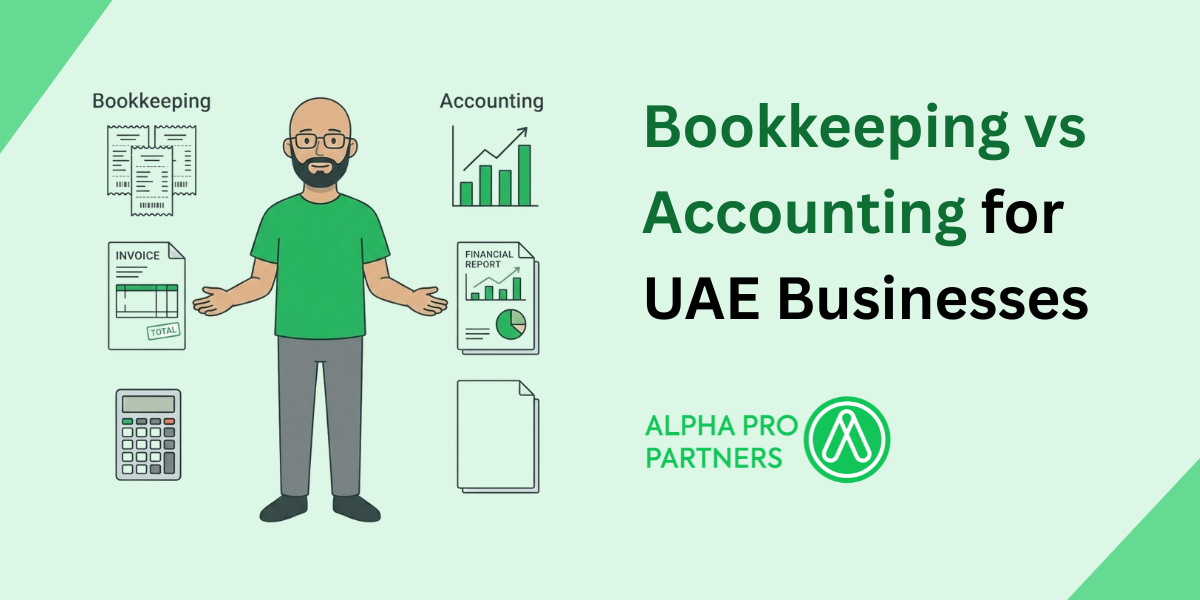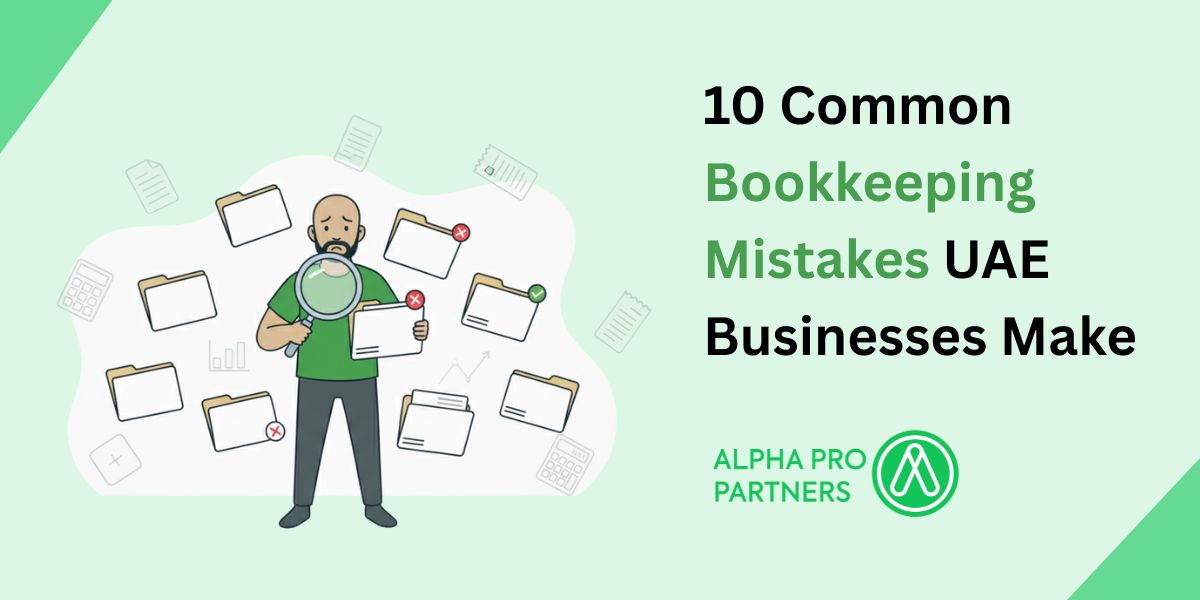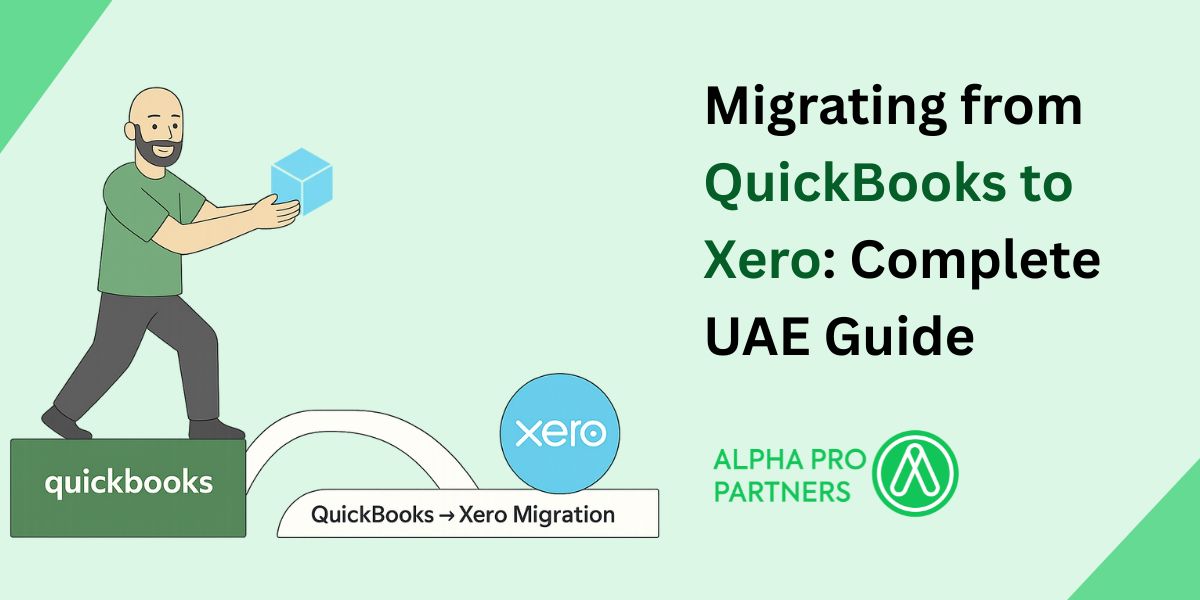Smart Expense Tracking Methods for Business Owners

Running a business in Dubai? You’re probably juggling invoices, receipts, budgets, and tax rules all at once. It’s a lot. But keeping your expenses in order doesn’t have to feel like a chore. With the right system (and a bit of discipline), expense tracking can be smooth, simple, and even, dare we say, satisfying.
We’re going to break it all down in plain language. We’ll cover why tracking expenses matters, which ones to watch, and how to stay on top of it all without going cross-eyed.
Let’s make expense tracking feel less like admin and more like a smart move for your business.
Why Tracking Business Expenses Actually Matters
It’s Not Just for Tax Season
Tracking your expenses isn’t about ticking boxes at tax time. It’s how you keep your business healthy. When you know where your money is going, you can spot problems early, plan smarter, and avoid overspending.
It also means fewer surprises when the tax bill lands. Every dirham logged today could be a deduction tomorrow.
It Keeps Your Books Clean
Mixing personal and business expenses? That’s where things get messy. Keeping them separate helps you see what your business is really earning and spending.
Plus, clean books mean better decisions, easier audits, and peace of mind. No scrambling through old receipts when you need proof.
It Shows You’re in Control
Whether you’re pitching to investors or applying for a loan, neat expense records say one thing loud and clear: you’ve got your act together.
What You Should Be Tracking
Everyday Expenses
These are the usual suspects:
- Office rent
- Internet and phone
- Salaries and freelance payments
- Software subscriptions
- Travel and client meetings
Log them as they happen. Don’t wait. It’s easy to forget the small stuff—and those small amounts add up fast.
Capital Expenses vs Operational Costs
Big equipment purchases? That’s capital spending. Recurring costs like rent or salaries? Those are operating expenses.
Capital expenses usually aren’t tax-deductible in one go; they’re depreciated over time. But operational costs can often be deducted yearly. Knowing the difference helps when it's time to file.
Direct vs Indirect Costs
Direct costs are tied to what you sell like materials or product packaging. Indirect ones keep your business running, like admin tools or electricity.
Track both. Each plays a role in your profit margins.
Fixed vs Variable Costs
Fixed costs stay steady, like rent. Variable ones go up or down depending on sales, like commission or shipping.
Understanding both types helps you plan better and adjust quickly when business picks up or slows down.
Manual Tracking Methods (If You Like It Old School)
Ledger Books Still Work
Yes, we said it. A good old ledger can still do the trick if you’re disciplined. Write down every expense, date, and business purpose. It’s simple, but it works.
Spreadsheets That Make Sense
Google Sheets or Excel can be surprisingly powerful. Set up categories, use formulas, and keep things updated weekly. Pro tip? Add columns for VAT amounts and payment method.
Don’t Ditch Your Receipts
Hang on to those slips. Snap photos or scan them and store them in folders by month. Annotate them with quick notes like “Client lunch with XYZ” or “Office chair purchase.”
Envelope Budgeting (Yes, It’s a Thing)
This one’s more visual. Allocate a set amount of money to each category and track spending manually. It’s basic but gives you a good feel for how much you’re burning through.
Digital Tools That Make Life Easier
Accounting Software
Xero, QuickBooks, or Zoho Books; these tools do more than track expenses. They sync with your bank, categorise spend, and generate reports on the fly.
They’re a smart choice if you want everything in one place. Plus, they’re pretty handy for VAT tracking too.
Mobile Apps for Quick Tracking
Apps like Expensify, Rydoo, or WellyBox let you snap receipts, log expenses in seconds, and generate expense reports.
Some even scan text from receipts automatically, so you don’t have to type a thing. Great for teams or when you’re always on the go.
Online Invoicing & Billing
Need to send invoices and track what’s paid? Online invoicing tools like Xero, FreshBooks or Zoho Invoice let you do both and link income and expenses seamlessly.
Cloud-Based Systems
Want access from anywhere? Cloud-based tools are your friend. They’re secure, often multilingual, and work with multiple currencies which is perfect if you deal internationally.
Just make sure whatever you choose plays nice with your existing systems.
Expense Tracking Habits That Actually Work
Stick to a Schedule
Pick a day each week to sit down and update your records. Block 30 minutes and treat it like a meeting.
That regular habit saves you hours (and stress) at the end of each month.
Separate Business from Personal Spending
This one’s a must. Open a business account and use it exclusively. You’ll save time and headaches later.
It also keeps your financial reports accurate which matters if you’re audited or applying for funding.
Run Internal Audits
Set a reminder to do a mini-audit each quarter. Are there duplicate charges? Forgotten subscriptions? Are you categorising expenses correctly?
Catching errors early helps you fix them before they snowball.
Keep Learning
Tax rules change. New tools pop up. Stay sharp by signing up for a finance workshop, reading reliable blogs, or just chatting with your accountant once a quarter.
The more you understand, the better your financial decisions will be.
Why This Matters in Dubai
Running a business in Dubai means playing by strict rules. The UAE corporate tax framework expects businesses to maintain clear financial records for at least five years.
That means every receipt, transaction, and VAT input needs to be tracked properly. And with tax laws tightening, the margin for error is shrinking.
The upside? Proper tracking can save you serious money on taxes and protect you from penalties.
Final Thoughts
Tracking expenses isn’t just another task on your to-do list. It’s the backbone of smart business. From manual systems to cloud apps, there’s no one-size-fits-all approach, use the one that works for you.
What matters most is staying consistent, being accurate, and understanding where your money is going.
At Alpha Pro Partners, we help businesses like yours take control of their finances, simplify their systems, and stay tax-compliant in Dubai. If you’re tired of the guesswork, let’s talk.
FAQ: How to Track Business Expenses
1. What’s the easiest way to start tracking expenses?
Start simple with a spreadsheet or a receipt-scanning app. Just get in the habit of logging everything.
2. Should I keep paper receipts or digital copies?
Both work, but digital is easier to organise. Just make sure they’re backed up and clearly labeled.
3. How long do I need to keep business expense records in Dubai?
At least five years, according to UAE tax law.
4. Are all business expenses tax-deductible?
Not all. Only those that are legitimate, necessary, and properly documented. Talk to your accountant for specifics.
5. Can I mix business and personal expenses?
We wouldn’t recommend it. It makes tracking harder and opens the door to tax issues.
6. Is spreadsheet tracking good enough?
It can be, especially for freelancers or small businesses. Just be consistent and update it regularly.
7. Do I need to hire an accountant?
Not always. But if your finances are complex or you're short on time, it can be a smart move.
8. What’s the best app for expense tracking?
Depends on your needs. Try a few like Expensify, Zoho, or QuickBooks and see which fits.
9. Can I track expenses by project or department?
Yes and you should if you want clear insights on what’s profitable.
10. How do I prepare for tax season in Dubai?
Stay organised year-round. Use tools that track VAT, store receipts, and generate reports. That way, you’re not scrambling come tax time.

.webp)







%20Widgets%2C%20Shortcuts%20%26%20Customisation.jpg)








.webp)
.webp)


.png)
.png)
.png)
.png)
.png)

.png)
.png)



.png)
.png)





.jpg)


.jpg)





.png)
.png)






.png)


